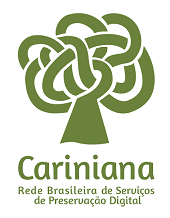Intergenerational actions: a reinterpretation of the seniors in the information institutions.
DOI:
https://doi.org/10.5433/2317-4390.2016v5n1p75Keywords:
Elderly, Intergenerational, Libraries. SchoolsAbstract
Introduction: The general framework in indicate a path that could represent the announcement of a new stage in the relations we have with the elderly and with them the most different age groups.Objectives: In this document, we seek to present initiatives that have in intergenerational relationships trigger your motto, with special attention, although not exclusively, those related to the area of librarianship.
Methodology: The methodological procedures are oriented according to qualitative principles, exploratory given the need to get closer to the object of study.
Results: Present initiatives that were in intergenerational relationships trigger your theme, with special attention, although not exclusively, those related to the area of librarianship. These searches led us to recognize the existence of an international dimensions of movement rescue the elderly and his experience as a form of rehabilitation of this segment in the sociocultural life.
Conclusions: The recognition of the existence of an international dimensions of movement rescue the elderly and his experience as a form of rehabilitation of this segment in the sociocultural life.
Downloads
References
ASSEMBLEIA GERAL DAS NAÇÕES UNIDAS. Plano de Ação Internacional de Viena Sobre o Envelhecimento. Disponível em: http://www.ufrgs.br/epsico/publicas/humanizacao/prologo.html. Acesso em: 14 nov.2015
BEAUVOIR, Simone. A velhice. Rio de Janeiro: Nova Fronteira, 1990.
BERMAN, Marshall. Tudo que é sólido desmancha no ar. São Paulo: Companhia das Letras, 2007.
BOSI, Ecléa. Memória e Sociedade: Lembrança dos velhos. São Paulo: Companhia das Letras, 1979.
CASTELLS, Manoel; CASTELLS. A sociedade em rede. Rio de Janeiro: Paz e Terra, 2000.
CHISITA, Collense T.; ABDULLAHI, Ismail. The Challenges and Opportunities of preparing LIS Students for Orally based communities. Disponível em: http://www.ifla.org/past-wlic/2010/152- chisita-en.pd. Acesso em: 22 nov. 2015.
DÍAZ GRAU, Antonio. Experiencias con ancianos y niños en una biblioteca pública: bueno, bonito y barato. Boletín de la Asociación Andaluza de Bibliotecarios, v. 21, n. 82, mar./2006a, p. 57-68. Disponível em: https://dialnet.unirioja.es/servlet/articulo?codigo=2259123. Acesso em: 22 nov. 2015.
DÍAZ GRAU, Antonio. Programas bibliotecarios para ancianos en la Biblioteca de Santiago de la Ribera. TEJUELO: Revista de ANABAD-Murcia, Norteamérica, n. 4-5-6, oct. 2006b. Disponível en: https://dialnet.unirioja.es/servlet/articulo?codigo=2259123. Acesso em: 01 fev. 2016.
GAGNEBIN, Jeanne Marie. História e Narração em Walter Benjamin. 2. ed. São Paulo: Editora Perspectiva, 2005.
KAPLAN, Matthew S. School-based Intergenerational Programs. 2001. Hamburg: UNESCO Institue for Education. Disponível em: http://www.unesco.org/education/uie/pdf/schoolbasedip.pdf. Acesso em: 22 nov. 2015.
NATIONAL COUNCIL OF AGING. 2015. Disponível em: http://www.ncoa.org/. Acesso em: 22 nov. 2015.
NORA, Pierre. Entre memória e história: a problemática dos lugares. In: Projeto História: Revista do Programa de Estudos Pós-Graduados em História e do Departamento de História da PUC-SP, São Paulo, n. 10, 1993. p. 07-28. Disponível em: http://revistas.pucsp.br/index.php/revph/article/viewFile/12101/8763. Acesso em 22 nov. 2015.
PAIVA, Simone Borges. Oficinas intergeracionais: saberes e fazeres da experiência, mediação cultural e significação. 2015. 246f. Tese (Doutorado em Cultura e Informação) - Escola de Comunicações e Artes, Universidade de São Paulo, São Paulo, 2015. Disponível em: http://www.teses.usp.br/teses/disponiveis/27/27151/tde-13112015- 092819/. Acesso em: 2016-04-09
PERROTTI, Edmir; PIERUCCINI, Ivete. Infoeducação: saberes e fazeres da contemporaneidade. In: LARA, Marilda Lopes Gino de, FUJINO, Asa. NORONHA, Daisy Pires. (Org.) Informação e contemporaneidade: perspectivas. Recife: Néctar, 2007. p. 46-97.
RUBIN, Rhea Joyce. Intergenerational programming: a how-to-do-it manual for librarians. Chicago: Neal Schuman Pub, 1993.
PROGRAMA UNA BIBLIOTECA PARA TODAS LAS EDADES. Disponível em: http://www.acervointergeneracional.com/biblioteca00.html. Acesso em: 22 nov. 2014
SWAIN, Ellen. Oral History in the Archives: Its Documentary Role in the Twenty-first Century. The American Archivist, [s.l.], v. 66, n. 1, p.139- 158, jun./ 2003. Disponível em: http://americanarchivist.org/doi/abs/10.17723/aarc.66.1.9284q6r604858. Acesso em: 14 nov. 2015.
ZACHERT, Martha Jane K. The Implications of Oral History for Librarians. In College and Research Libraries, [s.l.], v. 29, n. 2, p. 101- 103, mar./ 1968. Disponível em: https://www.ideals.illinois.edu/handle/2142/38149. Acesso em: 14 nov. 2015.
Downloads
Published
How to Cite
Issue
Section
License
Copyright (c) 2016 Informação@Profissões

This work is licensed under a Creative Commons Attribution 4.0 International License.
A revista se reserva o direito de efetuar, nos originais, alterações de ordem normativa, ortográfica e gramatical, com vistas a manter o padrão culto da língua e a credibilidade do veículo. Respeitará, no entanto, o estilo de escrever dos autores. Alterações, correções ou sugestões de ordem conceitual serão encaminhadas aos autores, quando necessário.
O conteúdo dos textos e a citação e uso de imagens submetidas são de inteira responsabilidade dos autores.
Os trabalhos publicados passam a ser propriedade da revista Informação& Profissões, ficando sua reimpressão total ou parcial sujeita a autorização expressa da revista. Em todas as citações posteriores, deverá ser consignada a fonte original de publicação, no caso a Informação&Profissões.












